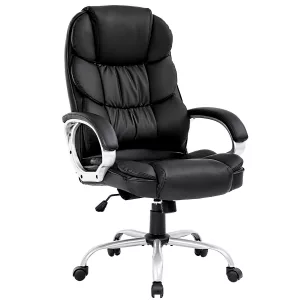Hey there! So, you’ve hurt your back at work—ugh, I feel you. That sharp twinge or nagging ache is no joke, and it’s totally normal to feel a little lost about what comes next. Maybe you’re wondering, “I hurt my back at work—what should I do?” or “How am I going to deal with this?” Don’t worry, friend—I’ve got you covered. Picture us grabbing a cozy cup of coffee while I walk you through everything you need to know, step by step. We’ll figure this out together!
Back injuries at work can throw you for a loop. One minute you’re lifting a box or rushing around, and the next, you’re wincing in pain, wondering how this is going to affect your day-to-day life. But here’s the good news: you’ve got options, and I’m here to break it all down in a way that’s easy to digest. We’ll talk about what to do right away, how workers’ compensation works, whether disability benefits might be on the table, and even what to do if things get tricky. Plus, I’ll sprinkle in some real talk and a little encouragement—because you deserve it.
So, grab a comfy seat (maybe prop a pillow behind that sore back), and let’s dive into this together. Ready? Here we go!
What to Do When You’ve Injured Your Back at Work
Alright, let’s start at the beginning. You’ve just hurt your back—maybe you fell at work and hurt your back, or maybe it was a slow build from too much heavy lifting. Either way, the first few moves you make are like laying the groundwork for a solid recovery plan. It’s kind of like planting a seed—you want to give it the best shot to grow strong, right?
➤ Want to understand why your back hurts when bending? Check out Back Pain When Bending: Causes and Solutions You Need to Know.
Tell Someone at Work ASAP
First things first: let your boss or HR know what happened. I know, I know—it might feel weird to speak up, especially if you’re thinking, “Will they think I’m slacking?” But trust me, reporting it right away is your golden ticket. It’s not just about being honest; it’s about starting an official paper trail. That’s going to be super important later if you need to file a claim or prove this happened on the job.
Keep it simple. Something like, “Hey, I injured my back at work today while moving some equipment,” works just fine. Jot down who you told and when, and maybe even send a quick email so you’ve got a record. It’s like leaving breadcrumbs for yourself—smart and stress-free!
See a Doctor, Pronto
Next up, get yourself to a doctor. Even if you’re tempted to tough it out (we’ve all been there!), don’t skip this step. Why? Because a doctor can figure out exactly what’s going on—whether it’s a pinched nerve, a pulled muscle, or something more serious like a herniated disc. Plus, they’ll write it all down, and that paperwork is like your backstage pass to getting help later.
I once had a friend who ignored a back tweak from work, thinking it’d just go away. Spoiler: it didn’t. A quick doctor’s visit could’ve saved her months of grief. So, do yourself a favor—make that appointment. Your back will thank you.
➤ Curious if your back pain gets worse when coughing? Check out Why Does My Lower Back Hurt When I Cough?.
Be Your Own Record-Keeper
Okay, this might sound a little tedious, but hear me out: keeping track of everything is a game-changer. Grab a notebook or your phone and start noting stuff like:
- When and where the injury happened
- What you were doing (lifting? Twisting? Running around?)
- Who you told at work
- Every doctor’s visit—what they said, what they prescribed
- Any emails or chats about it
Think of it like being the hero of your own story—you’re gathering evidence to save the day later. It doesn’t have to be fancy; just keep it clear. You’ll be amazed how handy this is when you’re filling out forms or talking to insurance folks.
Workers’ Compensation 101: Your Safety Net
Now, let’s chat about workers’ compensation. If you’re scratching your head wondering what that even is, don’t sweat it—I’ve got the scoop. It’s like a big, comfy blanket that wraps around you when you get hurt at work, helping with medical bills and lost wages. Pretty cool, huh? Let’s break it down.
What’s Workers’ Comp All About?
Workers’ compensation is there to catch you when you fall—well, figuratively (and sometimes literally!). It’s a system that covers employees who get injured on the job, no matter whose fault it was. So, whether you slipped on a wet floor or tweaked your back hauling boxes, you’re usually in the clear to get some help.
The catch? Every state plays by its own rules. Some might give you 30 days to report an injury, while others are stricter. Curious about your state? You can peek at details from places like the California Division of Workers’ Compensation if you’re in Cali, or your local equivalent. But the gist is: it’s there to help you heal without breaking the bank.
How to File a Claim
Filing a claim sounds intimidating, but it’s really not rocket science. Usually, you’ll grab a form from your employer or your state’s workers’ comp board, fill it out with the details of your injury, and send it off. The insurance company takes a look and decides if they’ll approve it.
Here’s a little heads-up, though: don’t be shocked if they push back at first. It happens more than you’d think, even with solid claims. If they say no, you can appeal—just lean on those records you’ve been keeping. It’s like having a secret weapon in your back pocket!
What You Might Get Out of It
So, what’s in it for you? Depending on how bad your back’s hurting and how long you’re out, workers’ comp might cover:
- Medical costs: Think doctor visits, meds, maybe even surgery or physical therapy.
- Lost wages: If you can’t work, you might get part of your paycheck—usually around two-thirds.
- Long-term stuff: If your back’s messed up for good, there could be permanent disability payments.
It’s not a jackpot, but it’s a lifeline. Imagine not stressing about bills while you focus on getting better—sounds nice, doesn’t it?
Disability Benefits: When Your Back Pain Lingers
Sometimes, workers’ comp isn’t the whole answer—especially if your back injury turns into a long-term saga. Maybe you’re dealing with chronic pain or something like spinal stenosis. That’s where disability benefits come in, like a trusty sidekick. Let’s explore what’s out there.
The Different Flavors of Disability Benefits
There’s a whole menu of disability options, depending on how long your back’s out of commission:
- Short-term disability: Perfect for a few weeks or months off. Often comes through your job or a private plan.
- Long-term disability: For when you’re sidelined a year or more—again, maybe through work or insurance you’ve got.
- Social Security Disability Insurance (SSDI): This is the big federal one, for serious, lasting conditions. Tougher to snag, but a lifesaver if you qualify.
Each has its own vibe and rules. SSDI, for instance, wants proof you’ve worked enough years and that your injury’s a big deal—like, “can’t work at all” big. It’s worth digging into what fits your story.
How Do You Even Qualify?
Qualifying’s the tricky part. You’ve got to show your back pain’s not just a nuisance—it’s stopping you from working. That means piling up medical proof: doctor’s notes, X-rays, treatment plans, the works. For SSDI, they’ve got a list of conditions they look at, like spinal issues or nerve problems. You can scope it out on the Social Security Administration’s site.
Heads-up: it’s a slow dance. Applications can take months, and lots get denied first go-round. Don’t let that bum you out—appeals work for tons of folks. Patience is your friend here.
Back Problems That Might Make the Cut
Not every sore back qualifies, so let’s spotlight some heavy hitters that might.
Spinal Stenosis
Ever heard of spinal stenosis? It’s when your spine’s like a crowded hallway—too narrow, squeezing those nerves. Ouch! You might be asking, “What benefits can I claim with spinal stenosis?” If it’s bad enough to keep you from working, disability could be in play—short-term, long-term, or even SSDI. Just make sure your doc’s got it all on paper.
Herniated Discs
A herniated disc is like a jelly donut with the filling squished out—except it’s your spine, and it’s not delicious. It can pinch nerves and make moving a nightmare. If treatments aren’t cutting it, disability might step in. I knew a guy who went through this—surgery helped, but the downtime was brutal. Records were his lifeline.
Chronic Back Pain
Chronic pain’s the sneaky one. No big “aha” moment, just a constant nag. If it’s wrecking your ability to clock in, you could still qualify. Show how it’s cramping your style—maybe pain meds, therapy notes, or even a boss saying, “Yeah, they’re struggling.” It’s all about painting the picture.
Beyond Workers’ Comp: Other Paths to Explore
What if workers’ comp falls short? Maybe they deny you, or the payout’s not cutting it. Don’t throw in the towel—there’s more to try, like a workplace injury lawsuit. Let’s unpack that.
Could a Lawsuit Be Your Move?
A personal injury lawsuit’s a different beast from workers’ comp. With comp, fault doesn’t matter—you just got hurt at work, end of story. But a lawsuit? You’re pointing fingers, saying someone messed up—like an employer ignoring safety rules or a coworker leaving hazards everywhere.
Say you fell at work and hurt your back because the floor was a mess and no one fixed it. That might be lawsuit territory. It’s a gamble, though—court takes time, and you might not win. It’s like betting on a horse race: thrilling if you’re right, but risky.
Bringing in a Lawyer
Thinking lawsuit? Chat with a lawyer who knows workplace injuries. They’re like your guide through a maze—helping you see if you’ve got a shot and what’s next. Lots offer free first talks, so you can test the waters. According to a study on Nolo’s legal site, having a pro can boost your odds. Find one local—they’ll know your state’s quirks.
Wrapping It Up: You’re Not Alone
Phew, we’ve covered a lot, haven’t we? Hurting your back at work is a curveball, no question. But look at you—you’re already figuring it out! From telling your boss and seeing a doc to navigating workers’ comp and maybe even disability or a lawsuit, you’ve got a toolbox full of options.
Feeling a little overwhelmed? Totally okay. Take it slow, one step at a time. Lean on friends, pros, or even drop a comment below—I’d love to hear how you’re holding up. What’s been the toughest part for you? Or maybe you’ve got a tip to share? We’re in this together.
You’re stronger than you think, and you’ve got this. Focus on healing, ask for help when you need it, and keep being your awesome self. You’ve got a friend cheering you on—me!

























Leave a Reply
You must be logged in to post a comment.